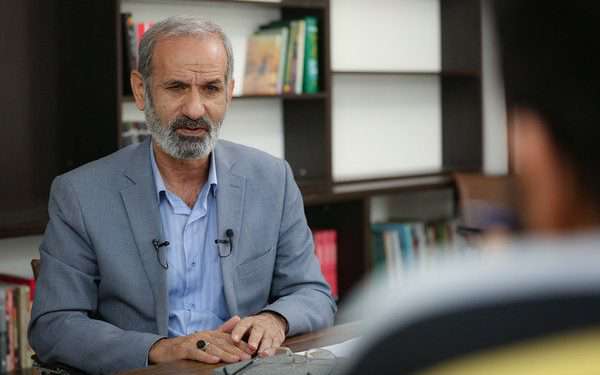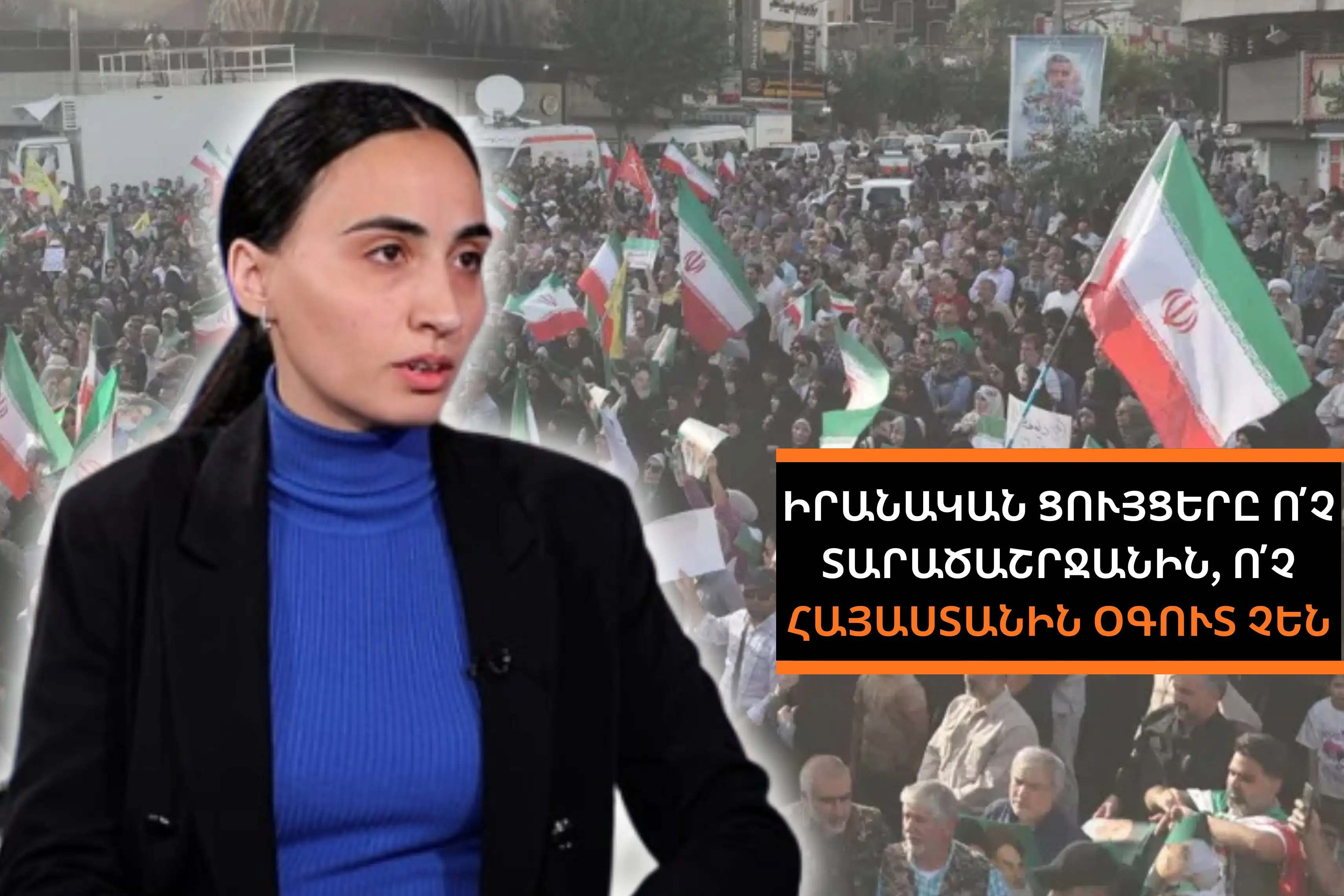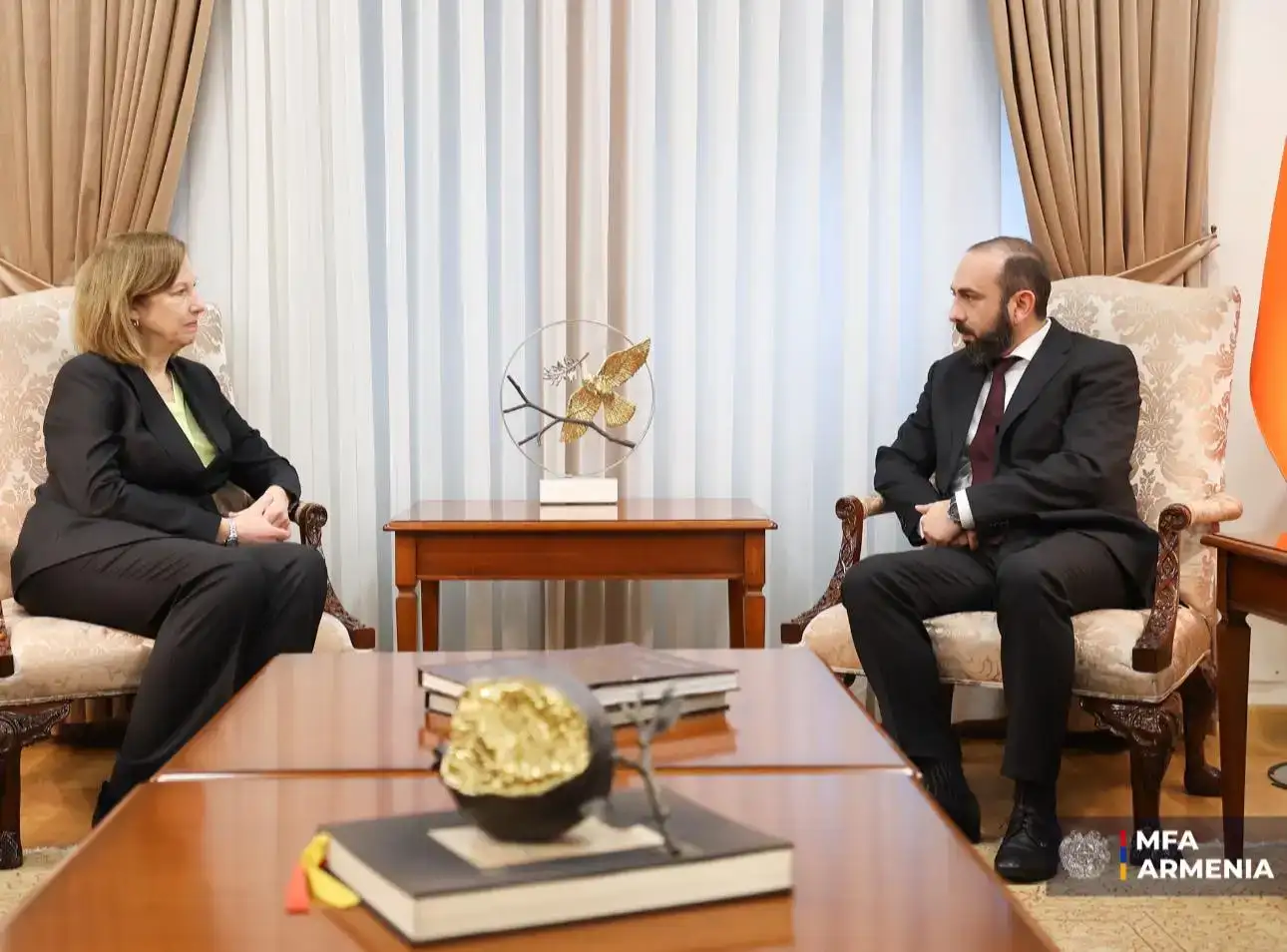Iranian professor Sadollah Zare, an international affairs analyst and advisor to the Supreme Leader of Iran's staff, spoke with Region Monitor about Armenia-Iran relations and regional and global developments.
The interview is below.
- Mr. Zare, how would you assess Iran-Armenia relations at the current stage? Is there a prospect of elevating relations to a strategic level and documenting them?
- Many people in our region have a saying: in Persian, we say, The past is the light of the future. That is, look at the past to see the future. Since the Republic of Armenia was established after the collapse of the Soviet Union, our relations with Armenia have been stable. These relations have never been interrupted. Tehran and Yerevan have always emphasized the importance of these relations, and their development has always been discussed. Although the development of relations between Iran and Armenia was not without a price for the Islamic Republic, taking into account the sensitive attitude of the Republic of Azerbaijan and the Shiite people of Azerbaijan. In other words, we paid a price for it. Our relations with Armenia have caused an adverse reaction in Azerbaijan towards Iran, but we have maintained and continued these relations. Therefore, the horizon for developing these relations is open. However, some opponents, including Western countries, do not initially want Iran's relations with the region's countries to develop. Today, they are putting pressure on Armenia, and we hope that the Armenian government will be able to withstand this pressure since this pressure also contradicts the national interests of Armenia. The wider Armenia's ties in this region, the more opportunities there will be for development. At the same time, the vulnerability will also decrease. Still, by creating contradictions in the region, Western countries are trying to hinder the growth of relations between nations, especially Iran's relations with the area's countries.
- As you know, the text of the peace agreement between Armenia and Azerbaijan is ready, but Azerbaijan refuses to sign this document. There are expert opinions that military operations against Iran may begin in cooperation with the US-Israel-Azerbaijan. There is an opinion that Azerbaijan is avoiding signing the agreement due to all this, since during a possible war against Iran, it may occupy territories from Armenia. For example, this may be the opening of the so-called "Zangezur corridor." How do you assess the likelihood of such a scenario?
-Over the past 10 years, we have witnessed a ridiculous idea: some said that it is possible to establish relations in the Caucasus without Iran, that is, excluding Iran's participation. But in reality, over these years, no side has been able to establish proper relations without Iran. Iran did not intervene in the war between Azerbaijan and Armenia. Unlike some regional countries, we were not on the side of the war, but they could not ignore Iran's position. In other words, we have no concerns about maintaining our position. Although external interventions can create problems, they cannot significantly change the situation because we are sensitive to this region. This is a region that was once part of Iran's ancient geography. The culture of this region is connected to our culture, security to our security, economy to our economy, and transit routes to our interests. This territory is also a connecting link between Iran and Russia, Iran and Europe. Therefore, these relations must be preserved, and we believe they will be maintained. Azerbaijan realizes that neither America nor Israel is its neighbor. Its only large neighbor is the Islamic Republic of Iran. This is not something that can be changed. This is reality. Therefore, we do not take very seriously the talk that Israel or the United States want to do something like this here. Ultimately, the region's fate is determined by regional processes, not by policies defined on the other side of the Atlantic Ocean. An example of this is the failure of the "deal of the century" or the inability of the Abraham Accords to change the region's realities. Reality changes resistance, not programs written on paper. This region does not belong to the US or Israel. This is a standard geography for us, the peoples of the region, and it is based on our close relations that a security, political, and economic system can be formed here.
- How does Iran relate to Armenia's "Crossroads of Peace" initiative? Does Iran share Armenia's perspectives on the initiative and its offerings for the states of the region?
-Islamic Republic In his New Year's speech, Supreme Leader Ayatollah Khamenei, while speaking about economic issues, gave the example of the "North-South Corridor." This shows that the orientation of Iran's economic thinking towards the region is based on the idea of a common corridor between these countries. Mr. Pashinyan's proposal can be evaluated in this context, and in our opinion, this can resolve the numerous needs and tensions between the two countries. In other words, all the demands of Azerbaijan, all the demands of Armenia, the demands of Georgia, ours, Russia, Turkey, and Europe can be resolved within the framework of this large-scale corridor without creating tension. In my opinion, Mr. Pashinyan's proposal is entirely worthy of study.
- In what direction and how can the Iran-US negotiations proceed? Will it be possible to reach a diplomatic deal as a result, or is the possibility of a military confrontation not excluded?
-The US and Trump himself emphasized in their letter to Iran that the time has come to talk after a long period of tension. He noted that dialogue can bring benefits and open a new path. However, I have doubts whether Mr. Trump is sincere in this matter. We have not seen sincerity in Trump: one day, he says one thing, and the next, he does the opposite. For example, he simultaneously imposed sanctions on new companies with that friendly letter. This speaks of a lack of sincerity. However, there was a critical thing in Trump's letter: he admitted that the conflict could not solve the US problem with Iran, and the US could not solve its problems militarily. Ultimately, there should be dialogue. However, according to Trump, this dialogue should serve only the interests of the US. Meanwhile, the dialogue should be based on the interests of both countries and even a wider circle of international interests. The two states should discuss their issues based on international law. This is entirely possible since there are clear rules: international law, respect for independence, the right to nuclear energy, the right to have a strong army, and the right to carry out regional free trade. The US says forget all this and accept the new order it proposes. But this is impossible because it violates international rules and harms everyone. If the rules are violated in one place, they may also be violated in other areas. Therefore, if the question is whether it is possible to resolve the problems between the US and Iran within the framework of international law, then the answer is yes. However, if the question is whether Iran will give up its rights for the sake of peaceful relations with the US, the answer is no. This has not happened for 46 years, and the tension has always been there, but it was from the US side. Iran never started this tension; we did not threaten the US, and if we responded to a blow, it was a response and not an initiative.
- Mr. Zare, what is Iran's position on the growing influence of external actors in the South Caucasus, especially Turkey and Russia?
- Look, we believe that Turkey is one of the countries in the region; it has interests, ties, and rights. This is acceptable. It is permissible for Turkey to have an active role in the Caucasus, just as Russia has. The same applies to other countries, including Iran, Armenia, Azerbaijan, and Georgia. But currently, Turkey and Mr. Erdogan himself are expanding the conflict in the South Caucasus. This is not logical. This is not about Turkey's national interests or security but about a chaotic ideology that is spreading in the Caucasus. This ideology ultimately harms Turkey because, in conflict conditions, Turkey cannot advance its policy. This is also harming the rest of the countries in the region. This is not something that can be ignored.
- How does Iran assess the current state of its relations with Azerbaijan, especially after the recent tensions?
- Look, as the Islamic Republic of Iran, we have natural, close, and historical relations with Azerbaijan's people, territory, security, and interests. Iran has always fulfilled its friendly obligations towards Azerbaijan. You know that this region was separated from Iran not so long ago. Less than two centuries. Over the past 35 years, when states emerged and developed, sometimes strengthened, sometimes weakened, Iran has never made any claims to Azerbaijan, Armenia, or Georgia, not even on a single village or river. And you know what Turkey is doing - it is seizing territories in Syria, it has captured Bashiqa in Iraq and is trying to expand its positions, but Iran has never made any claims not only on this territory but even on Bahrain, which separated from Iran 50 years ago. In other words, our position is clear. We are not looking for instability or territorial expansion; we are for cooperation and brotherhood. Some people do not. We cannot see that brotherhood in the Caucasus because it is an obstacle to the penetration of foreigners. The anti-Iranian movements in the Caucasus have foreign-American, Israeli, and other sources. We have no territorial, border, or other claims to Azerbaijan. So why should there be instability here - it does not correspond to our interests. However, some people exaggerate the reality, conveying it with incorrect interpretations, for example, to the Azerbaijani public. However, these policies will not yield results. The geographical realities of the region do not change - the neighborhoods of Iran and Azerbaijan, Armenia and Azerbaijan are unchanged. External interventions can only cause temporary fluctuations but cannot dictate an entire regional system.




















